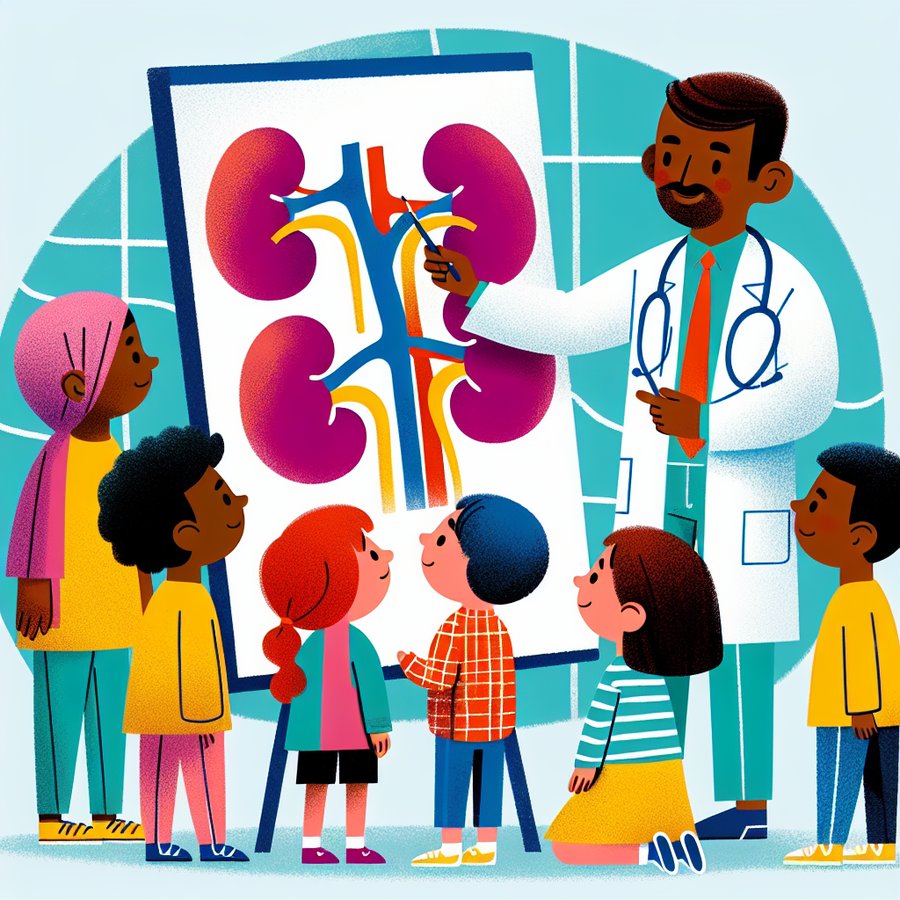Kidney reflux, a condition formally known as vesicoureteral reflux (VUR), often surfaces as a concerning topic for new parents navigating the complexities of their baby’s health. This condition, characterized by the backward flow of urine from the bladder into the kidneys, can lead to various health issues if left untreated. This comprehensive guide aims to shed light on kidney reflux, ensuring parents are well-equipped with the knowledge to support their child’s health effectively.
What is Kidney Reflux?
Kidney reflux, or vesicoureteral reflux, involves the abnormal flow of urine from the bladder back into the ureters and kidneys. This condition is particularly concerning because it can increase the risk of urinary tract infections (UTIs) and potentially lead to kidney damage. There are two types of kidney reflux: primary and secondary. Primary VUR is present at birth and often improves as the child grows. Secondary VUR is caused by a blockage or malfunction within the urinary system.
Understanding the signs and symptoms of kidney reflux is crucial for early detection and treatment. Symptoms can include recurrent UTIs, fever without a clear cause, and painful urination. However, in many cases, children may not show any symptoms, making regular check-ups essential for early diagnosis. For more detailed information, you can visit the National Kidney Foundation.
How is Kidney Reflux Diagnosed?
Diagnosis of kidney reflux typically involves a series of tests conducted by healthcare professionals. Initially, a physical examination and a review of the child’s medical history are undertaken. Subsequently, diagnostic tests such as a voiding cystourethrogram (VCUG) or an ultrasound of the kidneys and bladder may be recommended to confirm the diagnosis. These tests help in visualizing the urinary tract and identifying any abnormal flow of urine.
It’s important for parents to be proactive about their child’s health, especially if they notice symptoms that may indicate kidney reflux. Early diagnosis is key to managing the condition effectively and preventing complications. Parents should not hesitate to consult with their pediatrician if they have concerns about their child’s urinary health or if they notice signs of recurrent urinary tract infections.
Treatment Options for Kidney Reflux
Treatment for kidney reflux varies depending on the severity of the condition. In mild cases, monitoring and prophylactic antibiotics to prevent infections may be all that is required. For more severe cases, surgical intervention might be necessary to correct the condition. The goal of treatment is to prevent UTIs and protect the kidneys from damage.
Several surgical options are available, including endoscopic surgery, where a substance is injected near the opening of the ureters to prevent backward flow of urine, and open surgery to reposition the ureters. The choice of treatment depends on various factors, including the child’s age, the severity of VUR, and the presence of other urinary problems. Parents should discuss the potential risks and benefits of each treatment option with their healthcare provider.
Managing Kidney Reflux at Home
Aside from medical treatment, there are steps parents can take at home to manage kidney reflux and reduce the risk of UTIs. These include encouraging regular urination, ensuring proper hydration, and practicing good hygiene. For infants, frequent diaper changes are essential to prevent infections.
Additionally, parents should be vigilant about monitoring their child’s health and recognizing the signs of a urinary tract infection, such as fever, irritability, and changes in urine appearance or odor. Prompt treatment of UTIs is crucial to prevent kidney damage. For more information on managing UTIs and kidney health in children, you can refer to resources like Urinary Tract Infections in Babies and Kidney Reflux on our site.
When to Seek Medical Advice
If your child has been diagnosed with kidney reflux, regular follow-ups with a pediatrician or pediatric urologist are essential. It is important to monitor the condition closely and adjust treatment as necessary. If you notice any new or worsening symptoms, such as high fever, severe pain during urination, or signs of a kidney infection, seek medical attention immediately.
Remember, early intervention and consistent management are key to protecting your child’s kidney health. By staying informed and working closely with healthcare providers, parents can ensure the best possible outcomes for their child with kidney reflux.













